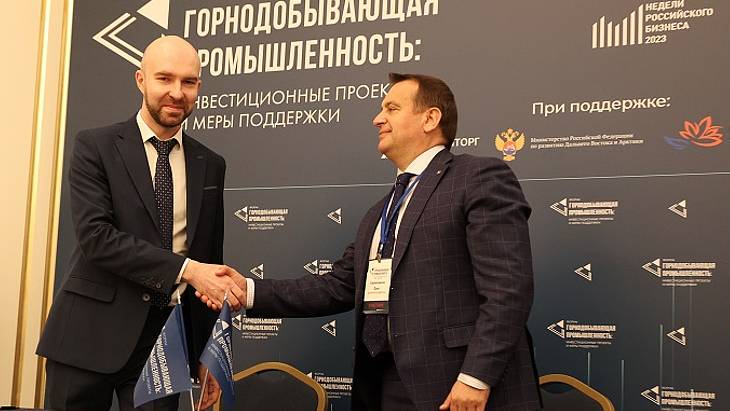The agreement was signed by Oleg Sirazetdinov, from Rosatom Overseas, and Kirill Kamenev, deputy director general for investment promotion at the development corporation, in Moscow during Russian Business Week. The agreement means the development corporation will assist Rosatom in choosing the most effective measures of state support for the project being built in northern Yakutia in the Russian Arctic.
Kamenev said: "We take into account the characteristic features of the Far East and the Arctic - the presence of remote and isolated territories that are not provided with a centralised electricity supply, and a large number of promising mineral deposits. The creation of a small-capacity nuclear power plant in the macroregion will play a positive role for their industrial development, and, most importantly, it will provide a guaranteed local source of energy at an affordable price for the consumer.
"The pilot project for the construction of a ground station will be implemented in conjunction with the development of the Kyuchusskoye field. The investor will be able to realise it, using benefits in the status of a resident of the territory of advanced development, or the Arctic zone of the Russian Federation. We will help Rosatom to analyse which of these preferential regimes is best suited for the construction of nuclear power plants. We are talking about the use of advanced domestic technologies, guaranteed energy supply to remote areas of Yakutia and improving the quality of life of northerners."
Sirazetdinov said he was sure the partnership "will create the most favourable conditions for the implementation of the flagship low-power ground-based nuclear power plant, which is innovative not only for our country, but for the whole world. The project will provide a clean, cost-effective and stable source of energy to the remote Arctic territories of Yakutia with a decentralised energy supply. The electric power of the station will be at least 55 MW, the service life of non-replaceable equipment will be up to 60 years."
He said that "a significant part" of the planned output will be used "to develop one of Russia's largest gold ore deposits, Kyuchus, nearby Deputatskoye and Tirekhtyakh tin deposits, and municipalities in Yakutia. This will create a powerful industrial cluster in the region with new jobs and professions".
Meanwhile, on 10 April, Strana Rosatom reported that Rosatom Overseas President Evgeny Pakermanov had updated Aisen Nikolaev, head of the region, about the progress of the project in Ust-Kuyga.
It said a technical design of the reactor facility had been developed, plus engineering surveys and analysis and evaluation of pre-project documentation, with the site being prepared for the start of full-scale work with 80 people working at the facility, while 2000 tonnes of cargo and 38 pieces of equipment had been delivered.
The project of a low-power nuclear power plant is based on the water-cooled nuclear reactor RITM-200N, adapting a low-power ship-based technology for ground deployment. Rosatom says that reactors of the RITM-200 series have been tested in Arctic conditions on the latest Russian icebreakers and meet all post-Fukushima safety requirements for modern NPP designs. It says the plant is characterised by compactness, modularity and reduced construction time compared with high-capacity nuclear power plants. It is scheduled to be put into operation in 2028.







_45278.jpg)
_36317.jpg)





